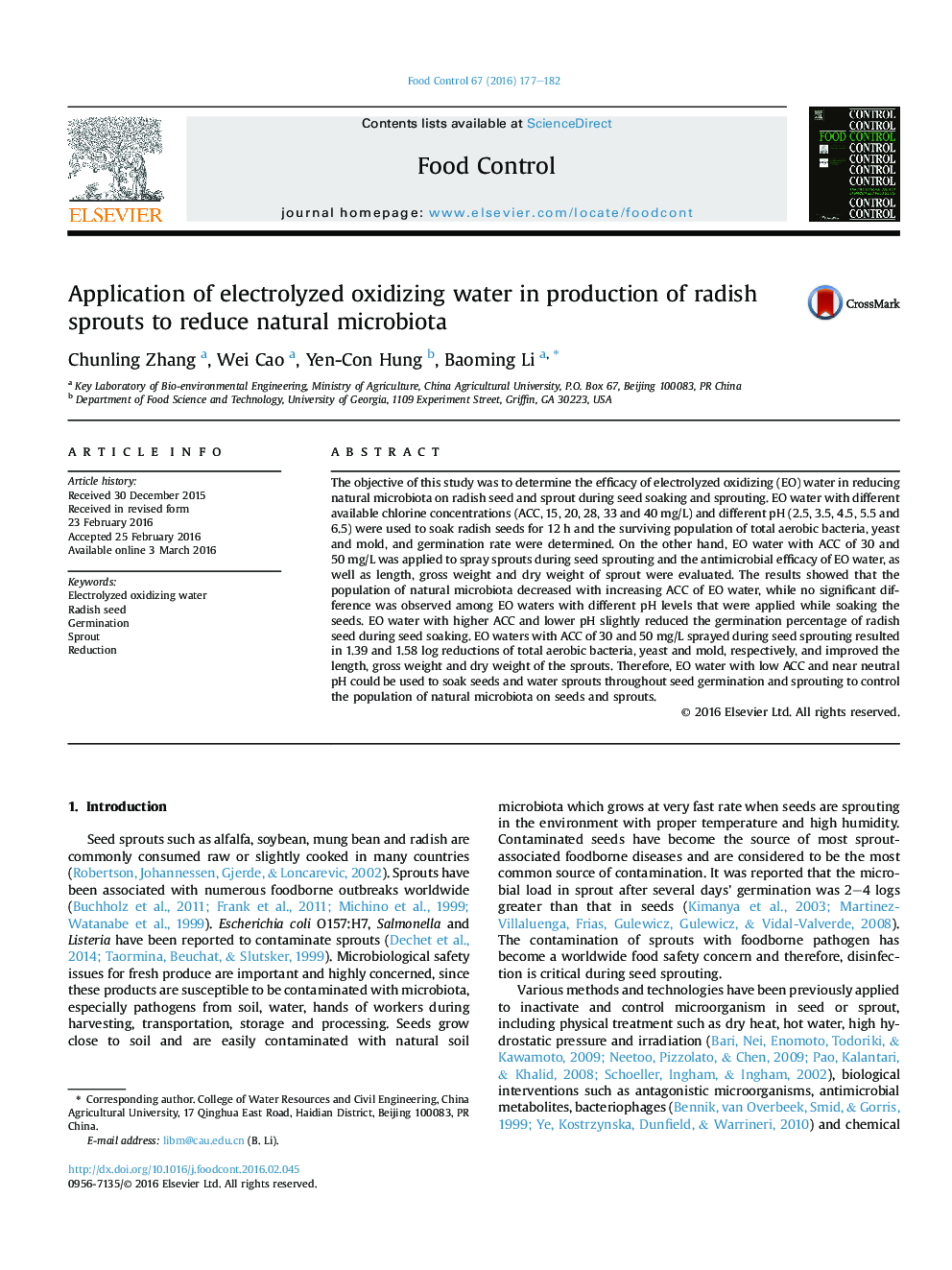| Article ID | Journal | Published Year | Pages | File Type |
|---|---|---|---|---|
| 6390121 | Food Control | 2016 | 6 Pages |
Abstract
The objective of this study was to determine the efficacy of electrolyzed oxidizing (EO) water in reducing natural microbiota on radish seed and sprout during seed soaking and sprouting. EO water with different available chlorine concentrations (ACC, 15, 20, 28, 33 and 40Â mg/L) and different pH (2.5, 3.5, 4.5, 5.5 and 6.5) were used to soak radish seeds for 12Â h and the surviving population of total aerobic bacteria, yeast and mold, and germination rate were determined. On the other hand, EO water with ACC of 30 and 50Â mg/L was applied to spray sprouts during seed sprouting and the antimicrobial efficacy of EO water, as well as length, gross weight and dry weight of sprout were evaluated. The results showed that the population of natural microbiota decreased with increasing ACC of EO water, while no significant difference was observed among EO waters with different pH levels that were applied while soaking the seeds. EO water with higher ACC and lower pH slightly reduced the germination percentage of radish seed during seed soaking. EO waters with ACC of 30 and 50Â mg/L sprayed during seed sprouting resulted in 1.39 and 1.58 log reductions of total aerobic bacteria, yeast and mold, respectively, and improved the length, gross weight and dry weight of the sprouts. Therefore, EO water with low ACC and near neutral pH could be used to soak seeds and water sprouts throughout seed germination and sprouting to control the population of natural microbiota on seeds and sprouts.
Related Topics
Life Sciences
Agricultural and Biological Sciences
Food Science
Authors
Chunling Zhang, Wei Cao, Yen-Con Hung, Baoming Li,
